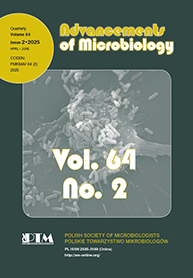Czynniki biologiczne w etiopatogenezie schizofrenii
1. Wprowadzenie. 2. Zakażenia wirusowe a patogeneza schizofrenii. 3. Infekcja bakteryjna a schizofrenia. 4. Przyczyny schizofrenii a choroby pasożytnicze. 5. Podsumowanie
Abstract: Schizophrenia is a mental disorder, that affects 7 per 1,000 people, aged 15–35 years. There are many theories about the pathogenesis of the schizophrenia, but the most important is dopaminergic theory, according to which psychotic symptoms are caused by excessive stimulation of dopaminergic structures in the limbic system. Moreover, many investigations showed significant influence of various microbes on certain genes expressed during prenatal period. It may cause neurohormonal changes similar to these noticed in the schizophrenia. Furthermore, numerous scientific groups work in the field of the interactions between endocrine, immune and nervous systems. Due to the last theory, the correlation between viral, bacterial and parasitic infections and their impact on those systems, seems to be particularly interesting and requires further investigation.
1. Introduction. 2. Viral infection and the pathogenesis of schizophrenia. 3. Bacterial infection and schizophrenia. 4. The causes of schizophrenia and parasitic diseases. 5. Summary

